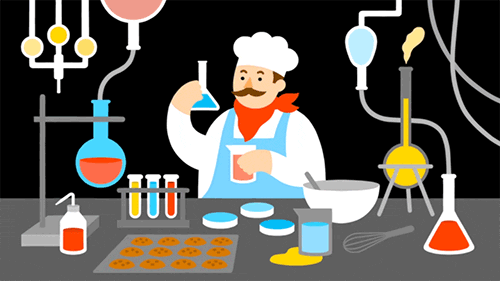What do you think of when you hear of chemistry? If you're like many others, you may
- visualize scientists in lab coats mixing colored liquids into test tubes and staring contemplatively
- associate it with synthetic food additives
- have bad flashbacks of a poorly taught highschool chemistry course

It is often difficult to dissasociate chemistry with its common portrayals. Before I took my first chemistry class, I had a warped perception of chemistry as I grew up in a culture where traditional perceptions of chemistry, often related to medicine and food additives, took precedent over its identity as the central science. Everything around you, from the monitor you're reading this on, to the food you eat, can be understood and explained using chemical principles. Understanding just several principles of chemistry provides for an immensely powerful tool in explaining things you may have never thought of before.

By XKCD
As this site progresses, I wish to share with you the logic behind chemistry in order to demonstrate what it is about chemistry that makes it so powerful. At its core, chemistry is just a set of rules that explain why things happen in the world the way that they do. The next few posts will start you off by explaining some of the fundamental principles of chemistry, answering questions like:
- What is an atom? How do we know they exist?
- What is the periodic table really?
- What are electrons and protons, and why do scientists always talk about them?
Before we start, you may want to review some basic math concepts that will appear in these posts. There won't be any math for a while, but I recommend you do a bit of review before you need to: